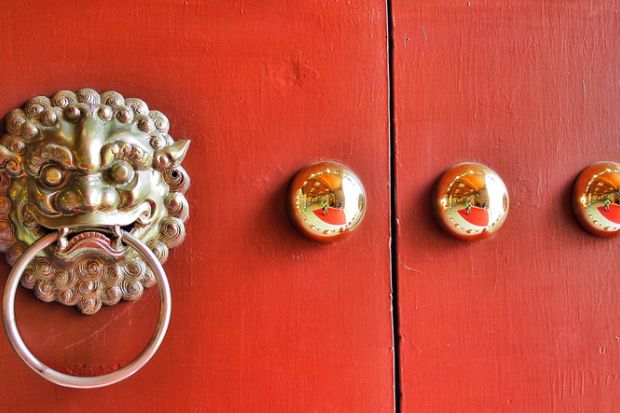An ecology PhD candidate at Stanford University has become the latest scholar to fall between the cracks of tensions between mainland China and Taiwan.
Chih-Fu Yeh, a Taiwan native now based in the US, was barred from attending a winter school session running virtually until 18 December and organised by the Abdus Salam International Centre for Theoretical Physics (ICTP) in Italy.
The centre, which is affiliated to the United Nations Educational, Scientific and Cultural Organization (Unesco), emailed Mr Yeh earlier this month to say that it was “not able to invite Taiwanese nationals according to UN rules, even though we recognise that you are certainly a scientifically worthwhile participant”.
“I was very much looking forward to this event, as it gets together some of the most renowned scientists in the field of ecology,” Mr Yeh told Times Higher Education. “This is a rare opportunity to be able to interact with these renowned lecturers and other attendees from various countries in this already tough year.”
Taiwan is excluded from certain world bodies, despite being a leader in technological fields such as semiconductor development. Academia Sinica, its top research institution, counts seven Nobel laureates as members.
“This means that we are excluded from the scientific conversation, preventing us from potential collaboration and contributing to the advancements in our field,” Mr Yeh said.
He issued a public statement saying that “the exclusion reflects a recent change in procedures, as Taiwanese scholars were able to attend ICTP events in 2019”. ICTP did not respond to a request for comment.
Unesco responded in a report in The Daily Telegraph saying that the situation had been resolved, and that Mr Yeh would be invited to another event in January.
However, speaking to THE on 15 December, Mr Yeh said that he had not heard from Unesco, had not been invited to another session, and still could not attend the current one.
The irony was that the event does not involve travel on his Taiwan passport, because it has been moved online. “I am not even allowed to log on to Zoom to join the conference,” he said.
A Unesco spokesperson told THE that it had not dictated ICTP’s decision, which was “the result of a confusion and of an over-strict interpretation of the relevant United Nations resolution rules and practices”.
However, it would be an easy thing to mix up. The Unesco spokesperson also said that related institutions are bound by UN resolution 2758, which recognises the People’s Republic of China as “the only legitimate representative of China to the United Nations”, but does not include Taiwan in that definition.
There is no record of how many other Taiwanese scholars have missed out on courses or conferences. However, for this particular ICTP event, at least one other Taiwan national was rejected without being told the reason, while another assumed he would be ineligible and did not apply.
A professor at National Taiwan Ocean University, which specialises in marine research, told THE that she once applied for a contract position with the Food and Agriculture Organisation of the United Nations, but was told that the UN could not hire a Taiwan national. They tried to work around the rules by having her hired via a Canadian university, but it did not happen in the end.
“This experience shows that sometimes people in the UN would seek alternative solutions,” she said. “However, preventing Taiwanese from joining a pure academic and educational event is another level of problem.”




